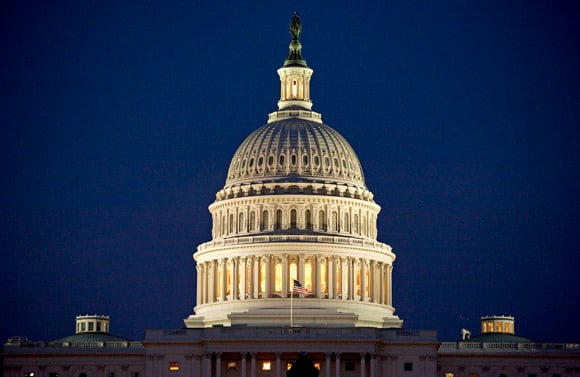Cuts for larger companies may be paid for by elimination of deductions for LLPs and LLCs
Washington is engaged in yet another dangerous game of chicken on tax policy. But advisers who feel they'll duck any real hardship arising from this political grandstanding could be sadly mistaken.
Indeed, if Congress makes incremental progress on tax reform next year, it's most likely come in the form of changes to the corporate rate rather than the individual rate.
At a Capitol Hill event on Dec. 7, officials from Nike Inc., Boeing Co. and Texas Instruments Inc. all called on Congress to lower the corporate rate. They said the current 35% level is undermining their ability to compete globally against companies that have more favorable tax systems in their home countries. House Ways & Means Chairman Dave Camp, R-Mich., introduced a draft proposal earlier this fall that would lower the corporate rate to 25%.
Here's the problem for investment advisers. To lower the corporate rate by 10%, a lot of tax expenditures (e.g., deferrals and deductions) would have to be eliminated to pay for it.
Many of those expenditures are utilized on individual tax returns, where so-called pass-through entities, such as the limited liability companies and limited liability partnerships, run their businesses. That means many advisory firms would take a hit.
Corporate tax reform leaves out about 93% of American businesses, according to Dean Zerbe, national managing director of alliantgroup, a tax advisory firm for small and medium-size businesses.
“In fact, to the extent that business credits and incentives are eliminated to pay for corporate tax reform, these small and medium businesses will actually see a tax increase — this includes the vast majority of investment advisory firms that are organized as a pass-thru entity,” Mr. Zerbe, former tax counsel on the Senate Finance Committee, wrote in an email. “We need to be talking about business tax reform in Washington – tax reform that lowers taxes and provides the right incentives to all businesses not just the Fortune 500.”
Speakers at the Capitol Hill meeting, sponsored by Reforming America's Taxes Equitably, acknowledged that there would be a disconnect if corporate reform goes first.
“That is one of the reasons that many believe you have to do personal and corporate reform simultaneously,” said Douglas Holtz-Eakin, president of the American Action Forum. “The politics of tax reform are hard. Dealing with two tax reforms is harder.”
Despite that challenge, it would be best to proceed with corporate and individual reform together because the top rate for both is 35% -- an equality that isn't always in place.
“It would be good to keep that parity as you go forward,” said Scott Hodge, president of the Tax Foundation.
It's likely that the political realities of 2012 will keep both corporate and individual taxes in sync because nothing profound is likely to occur on the policy front.
“As the election year goes on, gridlock will be more firmly entrenched,” Brian Gardner, senior vice president of Washington research at Keefe Bruyette & Woods, told reporters on Dec. 9.







